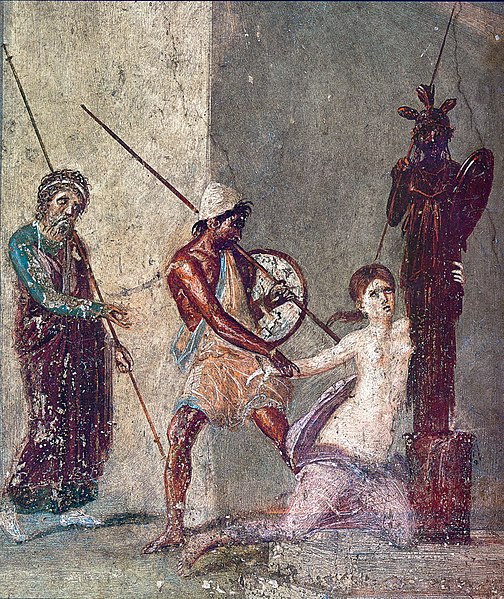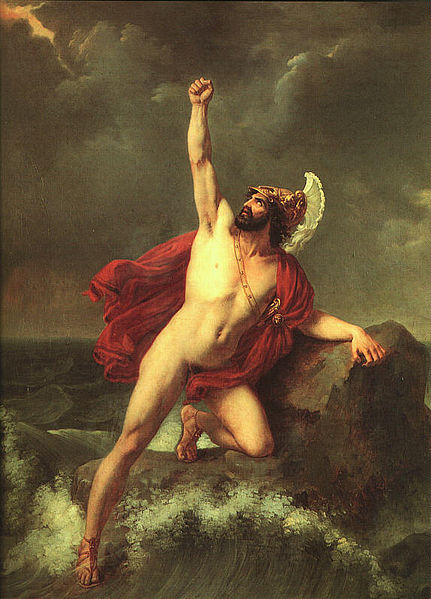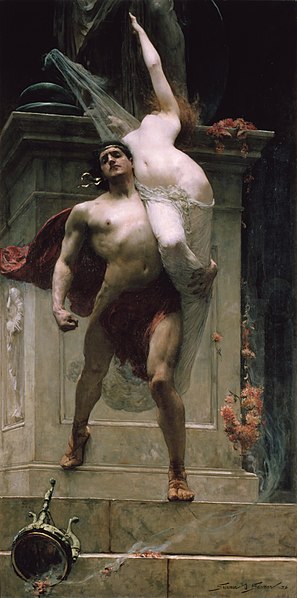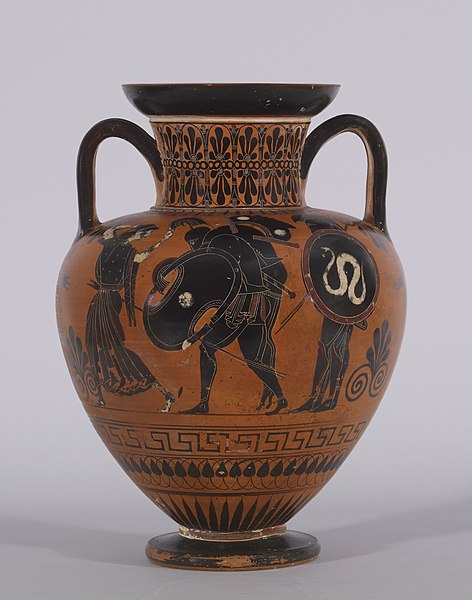Ajax was a Greek mythological hero, son of Oileus, the king of Locris. He was called the "Ajax the Less", the "lesser" or "Locrian" Ajax, to distinguish him from Ajax the Great, son of Telamon. He was the leader of the Locrian contingent during the Trojan War. He is a significant figure in Homer's Iliad and is also mentioned in the Odyssey, in Virgil's Aeneid and in Euripides' The Trojan Women. In Etruscan legend, he was known as Aivas Vilates.
Scene from the Trojan War: Cassandra clings to the Palladium, the wooden cult image of Athene, while Ajax the Lesser is about to drag her away in front of her father Priam (standing on the left). Fresco from the atrium of the Casa del Menandro (I 10, 4) in Pompeii.
Ajax, 1820 painting by Henri Serrur
Ajax the Lesser and Cassandra
Ajax and Cassandra by Solomon Joseph Solomon (1886)
Ajax or Aias is a Greek mythological hero, the son of King Telamon and Periboea, and the half-brother of Teucer. He plays an important role in the Trojan War, and is portrayed as a towering figure and a warrior of great courage in Homer's Iliad and in the Epic Cycle, a series of epic poems about the Trojan War, being second only to Achilles among Greek heroes of the war. He is also referred to as "Telamonian Ajax", "Greater Ajax", or "Ajax the Great", which distinguishes him from Ajax, son of Oileus, also known as Ajax the Lesser.
A black-figure amphora with Ajax carrying the dead Achilles. Walters Art Museum, Baltimore.
The Belvedere Torso, a marble sculpture carved in the first century BC depicting Ajax.
A copy of the 4th century BC fresco from the François Tomb, showing the sacrifice of Trojan slaves. Ajax the Great is the second from the right
The Argument between Ajax and Odysseus over Achilles' armour, by Agostino Masucci








